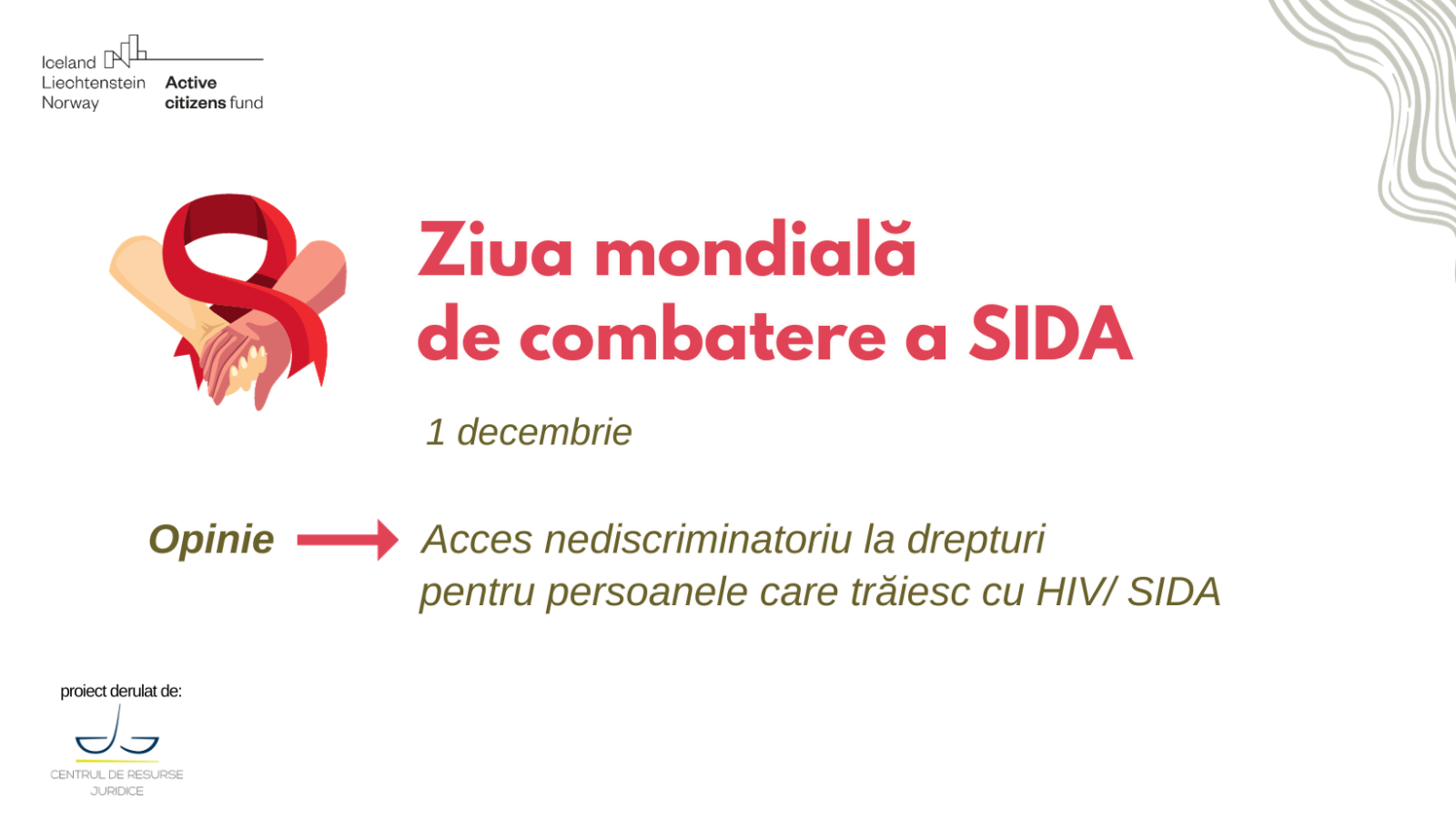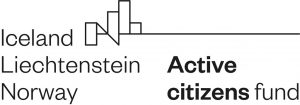Today is World AIDS Day, dedicated to raising awareness of people living with HIV/AIDS and their rights.
In Romania, in 2023, there is still a constant and frequent need for information, especially among authorities. Just a few months ago, the case of a mayor of a town in Bacau county gained notoriety in the media, a mayor who, in the context of a meeting in the institution, referred to the health status of a person in a stigmatising and discriminatory: “You have a contagious disease, don’t get close (…) I’m afraid to sit next to such a man! (…) That man has AIDS!”
This case is indicative of the abusive behaviour to which HIV-positive people are often subjected when they come into contact with representatives of the public authorities and others (see also the Valentin Câmpeanu case). Such cases are likely to shed light on a serious problem related on the one hand to the societal level of misinformation about the difference between AIDS (syndrome) and HIV (virus), the transmissibility of the HIV virus, treatment, and on the other hand to the general attitude that representatives of public authorities and other entities show in interactions with HIV-positive people.
The Romanian legal framework protects people living with HIV/AIDS from discrimination. The main provisions are included in the Criminal Code and in the Government Ordinance No 137/2000 on the prevention and sanctioning of all forms of discrimination (republished).
Criminal Code:
Abuse of office (by restricting rights) – Art. 297, para. 2 : “The same punishment [imprisonment from 2 to 7 years and prohibition to exercise the right to hold a public office] shall be imposed on a public official who, in the exercise of their duties, restricts the exercise of a right of a person or creates a situation of inferiority for that person on the grounds of race, nationality, ethnic origin, language, religion, gender, sexual orientation, political affiliation, wealth, age, disability, chronic non-contagious disease or HIV/AIDS infection.”
Crime motivated by the characteristics of the victim – Art. 77, lit.h: “The following circumstances constitute aggravating circumstances: […] h) committing the offence for reasons of race, nationality, ethnicity, language, religion, gender, sexual orientation, opinion or political affiliation, property, social origin, age, disability, chronic non-contagious disease or HIV/AIDS infection, or for other circumstances of the same kind, considered by the offender as causes of the inferiority of one person in relation to others.”
OG 137/2000:
Art.2 : “According to this Ordinance, discrimination means any distinction, exclusion, restriction or preference on the basis of race, nationality, ethnicity, language, religion, social category, beliefs, sex, sexual orientation, age, disability, chronic non-contagious disease, HIV infection, the belonging to a disadvantaged category, and any other criterion which has the purpose or effect of restricting or nullifying the recognition, use or exercise, on an equal footing, of human rights and fundamental freedoms or rights recognised by law in the political, economic, social, cultural or any other field of public life. “
According to a survey conducted by the National Council for Combating Discrimination, the dominant perception of discriminated groups in Romania refers primarily to people living with HIV/AIDS: 65% of respondents indicate them as the most discriminated group, especially at school, at work, but also in public places. The same survey shows that 59% of respondents believe that politicians discriminate in Romania, as well as civil servants in public institutions (46% of respondents indicating that they are associated with discrimination). Moreover, respondents said that civil servants working in public institutions discriminate more than doctors or teachers.
Some of the measures that need to be implemented to prevent and reduce the level of discrimination and stigmatisation of people living with HIV/AIDS may include:
- Organising training programmes for civil servants;
- Information on non-discrimination can be included in the codes of ethics drawn up at the level of different public institutions, especially those working with the public. Such codes of ethics could offer details about the relationship between the beneficiaries of public services and the institutions that provide them, as well as elements to ensure that local government officials are trained in non-discrimination. They should also include the obligation to maintain professional secrecy and confidentiality about people with HIV by employees of the various institutions.
- The inclusion in the curriculum of ‘Health Education’ as a compulsory subject, in order to provide correct information about HIV, AIDS syndrome, its transmission, but above all to help eliminate the stigma that is currently associated with HIV/AIDS.
- Provide accessible mechanisms for people living with HIV/AIDS to file complaints if they are denied services or have their dignity violated because of their diagnosis.
- Repeal Article 354 of the new Criminal Code, which criminalises the transmission of Acquired Immune Deficiency Syndrome – AIDS as a separate pathology.
To learn more about how you can debunk myths about HIV/AIDS, but also about how we can help reduce the stigmatisation and discrimination of people living with HIV/AIDS, access an informative material HERE.
Sources:
www.crj.ro/wp-content/uploads/2022/06/7.-Material-informativ-HIV-SIDA.pdf
www.cncd.ro/wp-content/uploads/2021/01/Sondaj_TNS_CNCD_2015.pdf
www.viata-medicala.ro/studiu-privind-stigmatizarea-si-discriminarea-pacientilor-cu-hiv-29996
www.crj.ro/wp-content/uploads/2023/07/Calendar-CRJ_short.pdf



